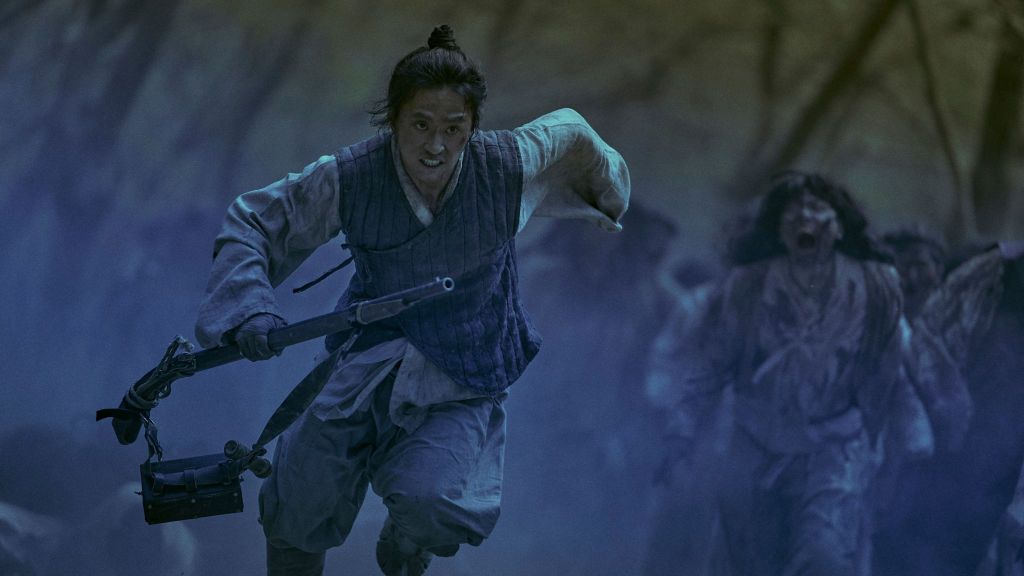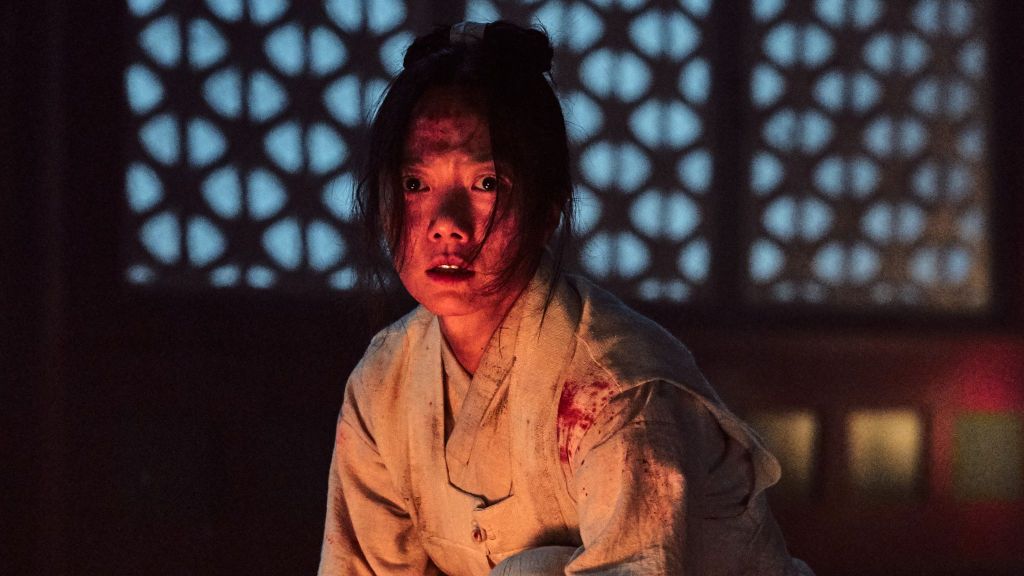Netflix quietly released one of the best modern zombie stories in 2019, and there is a good chance you completely missed it. The South Korean series Kingdom arrived with little fanfare but delivered a stunningly original concept: a full-blown zombie apocalypse set against the backdrop of a meticulously crafted historical political thriller. The show blended the visceral terror of a ravenous horde with the intricate courtly intrigue of Korea’s medieval Joseon period, earning near-universal praise from critics for its intelligence, production value, and relentless tension. Despite this acclaim, Kingdom never achieved the mainstream cultural footprint of its genre peers, leaving it as a criminally underrated gem. Still, for anyone who thinks the zombie genre has nothing new to offer, this series is a brilliant rebuttal.
Videos by ComicBook.com
Kingdom is a lean and perfectly paced horror epic, consisting of two six-episode seasons released in 2019 and 2020, followed by a feature-length special episode, Kingdom: Ashin of the North, in 2021. This compact structure ensures a relentlessly tense narrative that barrels forward without a single wasted moment. Furthermore, the decision to ground the outbreak within a specific historical context, a time of rigid social hierarchies, famine, and cutthroat political maneuvering, gives the horror an entirely unique texture. The result is an essential treasure waiting to be discovered by any viewer seeking a horror series that respects their intelligence while still delivering spectacular scares, though they should be prepared for an unresolved story.
What’s the Plot of Kingdom?

The core genius of Kingdom lies in its premise, which treats the zombie outbreak as a direct consequence of human ambition and political decay. The story follows Crown Prince Lee Chang (Ju Ji-hoon), who finds himself targeted in a dangerous conspiracy. His father, the King, has fallen gravely ill, but the powerful Haewon Cho clan, led by the Queen’s ruthless father, Chief State Councilor Cho Hak-ju (Ryu Seung-ryong), has sealed off the palace. They prevent anyone, including the Prince, from seeing the ailing monarch.
Fearing a coup and suspecting treason, Prince Chang secretly ventures out of the capital to investigate his father’s mysterious sickness. He discovers the truth in a famine-stricken village, where a plague turns its victims into monstrous cannibals who are unnervingly fast, agile, and seemingly unstoppable. Kingdom‘s setup immediately elevates it above typical survival fare. The Haewon Cho clan’s desperate attempts to cover up the King’s true condition and consolidate their power are directly responsible for the plague’s initial spread. This makes the human antagonists just as, if not more, dangerous than the infected.
As Kingdom unfolds, Prince Chang is forced to fight a war on two fronts, one against the ever-growing horde of the undead and another against the political enemies who are actively trying to have him killed. He is aided by the sharp-witted physician Seo-bi (Bae Doona), who tirelessly works to understand the plague’s nature, and the enigmatic hunter Yeong-shin (Kim Sung-kyu), a man with incredible fighting skills and his own hidden agenda. This blend of courtly intrigue and survival horror creates a narrative where a calculated political decision can be as deadly as a zombie bite, giving the story stakes that feel both epic and deeply personal.
Why Kingdom Deserves Your Attention

Beyond its brilliant premise, Kingdom succeeds on the sheer quality of its execution. The series boasts stunning production values, featuring breathtaking cinematography, immaculate costume design, and detailed sets that fully immerse the viewer in the beauty of Joseon-era Korea. What truly anchors the series, however, are its compelling characters and relentless pacing. Prince Chang’s arc from a politically targeted royal to a battle-hardened and compassionate leader of the people is the emotional core of the story. He is a genuinely heroic figure, but one who is constantly forced to make impossible choices in a world collapsing around him.
The supporting cast of Kingdom is equally strong, with Seo-bi representing the voice of science and reason amidst the supernatural chaos, and the human villains providing a chilling portrait of how ambition and cruelty can flourish in a crisis. Finally, the show’s six-episode seasons ensure there is no narrative fat, with each episode moving the story forward at breakneck pace.
Sadly, Kingdom‘s story remains incomplete. The second season concludes with a game-changing cliffhanger that completely redefines the threat. However, years have passed since that cliffhanger, and the future of Kingdom has remained frustratingly ambiguous. In 2021, Netflix released Kingdom: Ashin of the North, a feature-length prequel that masterfully explored the tragic origin story of the plague and the new antagonist introduced at the end of Season 2. While a fantastic film in its own right, it did not advance the primary storyline of Prince Chang. As of now, Netflix has not officially renewed or canceled the series, leaving its dedicated fanbase in a state of limbo. The commitment to such a beautifully crafted but unfinished story is a gamble, but the quality of the two existing seasons is so high it’s a risk well worth taking.
Did you watch Netflix’s Kingdom? What did you like most about it? Join the discussion in the comments.








